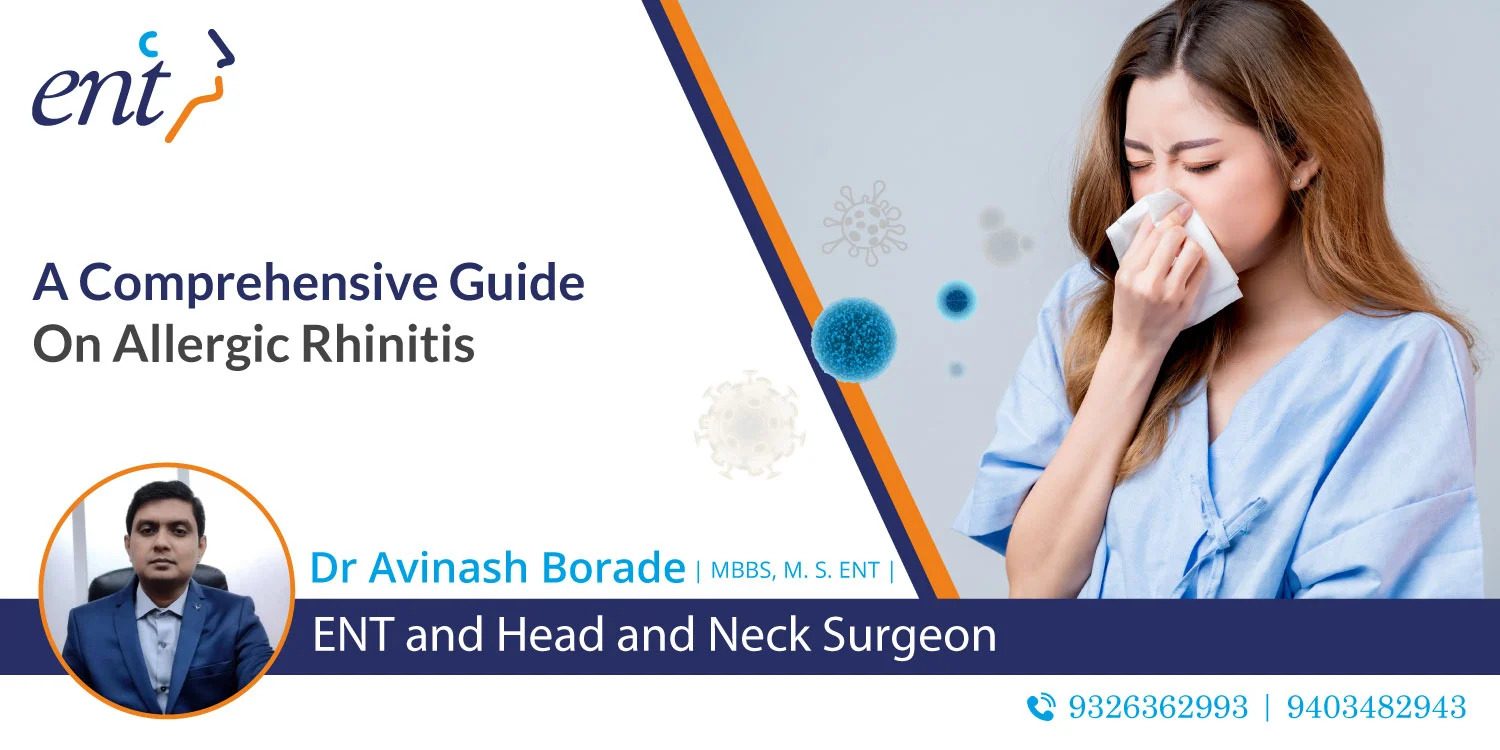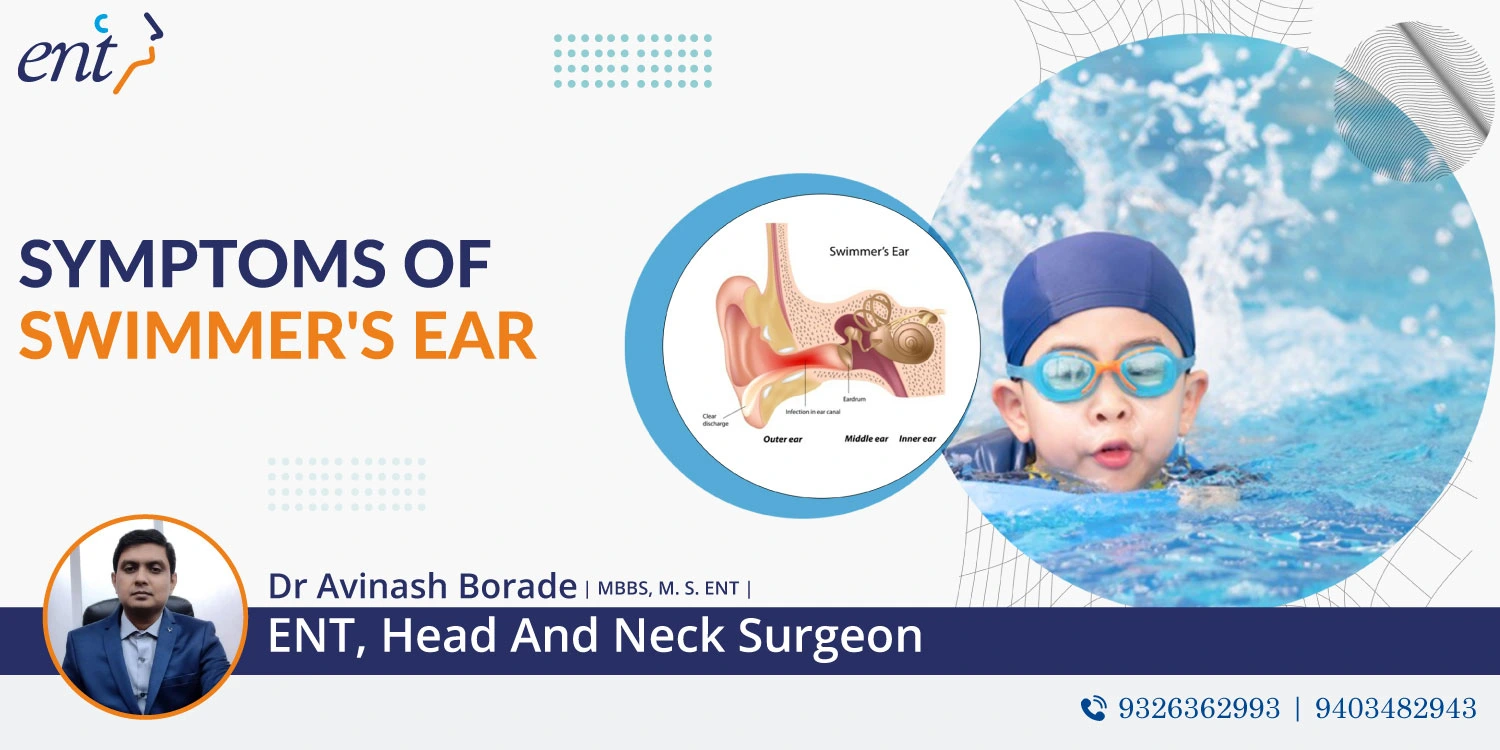A Comprehensive Guide on Allergic Rhinitis
1. What is Allergic Rhinitis?
Allergic rhinitis is one of the prevalent medical conditions affecting millions worldwide. Doctors characterized it by inflammation of the nasal lining due to an immune response triggered by allergens.
This condition may not be life-threatening. But it can significantly impact an individual’s quality of life. Dr. Avinash Borade emphasizes the importance of understanding and effectively managing this condition for improved well-being. He is a well-known doctor specializing in allergic rhinitis treatment in Navi Mumbai.
2. Causes of Allergic Rhinitis
Allergic rhinitis occurs when the immune system overreacts to typically harmless substances known as allergens. Common allergens include pollen from trees, grasses, and weeds, as well as dust mites, pet dander, and mould spores.
When exposed to these allergens, the immune system produces antibodies, triggering the release of histamine and other inflammatory compounds. This immune response leads to inflammation of the nasal passages, causing symptoms such as nasal congestion, sneezing, itching, runny nose, and postnasal drip. The severity of symptoms can vary depending on the individual’s sensitivity to specific allergens and the level of exposure.
Environmental factors such as air pollution, cigarette smoke, and weather changes can exacerbate allergic rhinitis symptoms. Genetic predisposition and family history of allergies can also contribute to the development of allergic rhinitis. Effective management of allergic rhinitis involves identifying and avoiding triggers, along with appropriate medical treatment to alleviate symptoms and improve quality of life.
3. Symptoms of Allergic Rhinitis
- Nasal congestion: Difficulty breathing due to swollen nasal passages.
- Sneezing: Frequent and uncontrollable sneezing fits.
- Runny nose: Excessive nasal discharge, often clear.
- Itching: Irritation and itching sensation in nasal passages.
- Postnasal drip: Mucus dripping down the throat, causing cough or throat discomfort.
- Reduced sense of smell: Partial or total loss of smell perception.
- Fatigue: Lowered energy levels due to restless sleep from nasal congestion.
4. Diagnosis of Allergic Rhinitis
Diagnosis of allergic rhinitis is multifaceted and involves comprehensive evaluation by healthcare professionals. Medical history assessment helps identify patterns and potential triggers, while physical examination assesses nasal passages and overall health. Allergy testing, including skin prick tests or blood tests, helps pinpoint specific allergens.
Nasal endoscopy allows direct visualization, and imaging tests like CT scans provide detailed insights. Accurate diagnosis is essential for tailoring effective treatment plans.
5. Treatment of Allergic Rhinitis
The treatment of allergic rhinitis aims to alleviate symptoms, reduce inflammation, and improve overall quality of life. Various options are available, including avoidance of triggers and medications such as antihistamines, decongestants, nasal corticosteroids, and leukotriene receptor antagonists.
For individuals who do not respond well to conventional treatment, immunotherapy may be considered. By addressing symptoms and underlying triggers, patients can effectively manage allergic rhinitis and experience relief from discomfort.
6. Conclusion
Allergic rhinitis is a common condition that can significantly impact an individual’s daily life if left untreated. Dr. Avinash Borade, a dedicated doctor for allergic rhinitis in Navi Mumbai, emphasizes the importance of understanding the causes, symptoms, diagnosis, and treatment options available for effective management. By seeking timely medical attention, individuals can alleviate symptoms, improve quality of life, and lead a healthier lifestyle.













